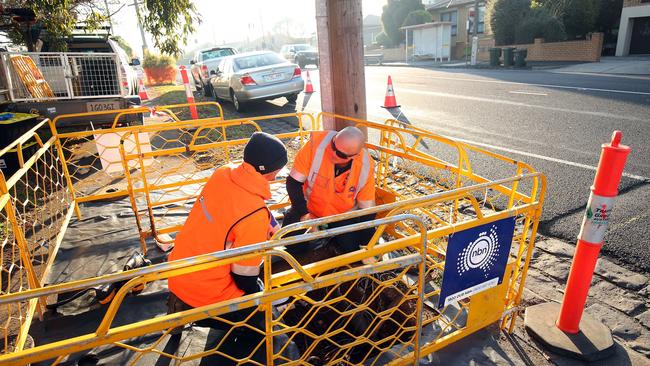Scamwatch warns about NBN impersonators trying to swindle unwitting victims
AUSTRALIANS are being warned not to fall for these attempts to swindle unwitting NBN customers out of their cash.

SCAMMERS are pretending to be NBN employees in a bid to trick unsuspecting Australians into handing over cash and their personal details, the country’s consumer watchdog warns.
Despite an aggressive marketing drive from NBN Co. to increase awareness and understanding of the national broadband project, there are still plenty of Australians who might not know exactly what to expect when the NBN comes to town, and fraudsters are reportedly looking to capitalise on the situation.
The ACCC’s Scamwatch says it has received 316 complaints this year about scammers impersonating NBN employees with nearly $28,000 reported stolen.
“Scammers are increasingly using trusted government brands like NBN to trick people into falling for scams. Their goal is always to either get hold of your money or personal information,” ACCC Deputy Chair Delia Rickard said.
Some of the scams, however, are quite crude in nature. For instance some involve a fraudster demanding payment via iTunes giftcards, which should always be a huge red flag. The NBN, or any other legitimate company for that matter, would never ask for payment via iTunes gift cards.
According to Scamwatch the fraudulent tactics mainly fall into three categories.
• Signing victims up to fake accounts: Scammers will cold call targets in NBN-ready areas and offer to connect them to the network for a low price and demand payment. The NBN won’t do this. But you will certainly get bombarded with advertisements from ISPs like Telstra, Optus and TPG.
• Seeking remote access to your computer: Fraudsters call victims claiming there are technical issues with their computer. “The scammer uses this ruse to gain remote access to the victim’s computer to steal valuable personal information, install malicious software or demand payment to fix ‘problems’ they have discovered,” the ACCC said.
• Phishing scams: The third way scammers are trying to swindle victims is by impersonating an NBN employee to solicit information like their name, address, Medicare number or licence number. They might try to do this by telling the target they’re entitled to a new router but need to confirm the person’s identity. Again, the NBN would not ever do such a thing.

Typically, fraudsters carrying out these types of scams target the elderly. So if you have elderly parents it can be a good idea to make sure they’re aware of such predatory callers.
“Australians over 65 are particularly vulnerable to this scam with fraudsters using phone calls to target their victims,” Ms Rickard said.
“NBN will never phone you out of the blue to try to sign you up to a service over its network. NBN is a wholesaler meaning they don’t sell direct to the public. If you get an unsolicited call like this, it’s a big red flag that you’re dealing with a scammer,” he said.
“NBN will also never call you to remotely ‘fix’ a problem with your computer, or to request personal information like your Medicare number or your bank account numbers. Don’t listen to the reasons they give you for needing this information.” he added.
If you’re ever in doubt about contact you’ve had from someone claiming to be from the NBN, Scamwatch suggests you hang up and call your internet service provider to check if the person calling is legitimate.
And more importantly, never give your personal, credit card or online account details to someone over the phone unless you made the call in the first place, and the phone number came from a trusted source.




